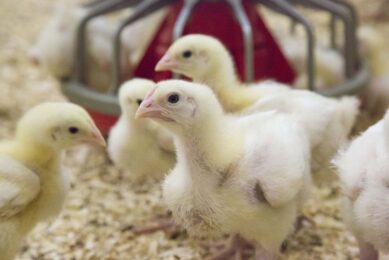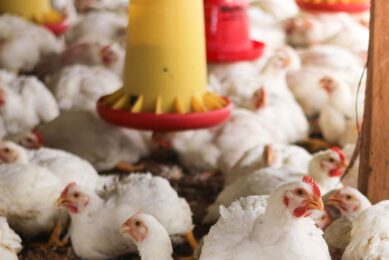Acetic acid supplementation benefits heat stress in layers
Supplementing layer feed with acetic acid may provide an effective, cost-efficient method of achieving significant reductions in the negative effects of heat-stress, resulting in major improvements in egg production and quality, according to pathogen elimination and mould control company Anitox.
“High environmental temperatures can have a significant detrimental impact on laying hen performance, reducing feed intake, egg production and quality, as well as increasing mortality. Alleviating the effects of high environmental temperatures can therefore significantly improve flock performance and profitability,” explains Alan Doyle, BVMS, MRCVS the company’s European Business Development Manager.
Independent research has demonstrated that the administration of acetic acid can have a very positive effect on the performance of laying hens during periods of heat stress. Conducted with commercial laying hens reared during a period when the average environmental temperature was 35°C, it demonstrated that acetic acid supplementation at a rate of 400-600ppm significantly increased egg production and quality, resulting in increased egg numbers, weight, diameter and length, together with improved shell and egg quality.
“Acetic acid is an organic acid which is used primarily to control mould and reduce bacterial growth in feed, but it can also inhibit the growth of micro-organisms in the gastrointestinal tract, modify pH levels and improve feed utilisation,” explains Alan Doyle. “Increasing acetic acid intake is often achieved by supplementing drinking water, but in some cases a more practical option is through the use of Maxi-Mil A during the feed manufacturing process. The unique Anitox Maxi-Mil Programme was primarily developed by Anitox to increase feed mill efficiency and it is widely used in countries with inherently warm climates, such as Egypt, Italy, Spain, Saudi Arabia and North Africa, to reduce process losses. Mills using Maxi-Mil A could also add it to layer mash at an inclusion rate of 1kg per tonne to produce feed containing the equivalent of adding 440ppm of acetic acid to drinking water.”
Anitox calculates that by supplementing layer feed with acetic acid using Maxi-Mil A at 1Kg/tonne during the hottest months, a business with 1,000,000 laying birds in an environment where house temperatures average 35°C for 10 weeks per year could produce an additional 6.4million eggs, giving an overall net-cost benefit of €245,667 from egg production alone.
A liquid mixture of organic acids and surfactants with mould inhibitory properties which optimises the efficiency of the feed manufacturing process and reduces process loss, Maxi-Mil A improves conditioning through increased thermal conductivity, lubricates the feed through the pellet press, reduces energy consumption, increases moisture retention during the cooling process, improves pellet quality and inhibits mould during storage, thereby optimising the shelf-life of the feed.
Source: Anitox
Join 31,000+ subscribers
Subscribe to our newsletter to stay updated about all the need-to-know content in the poultry sector, three times a week. Beheer
Beheer








 WP Admin
WP Admin  Bewerk bericht
Bewerk bericht